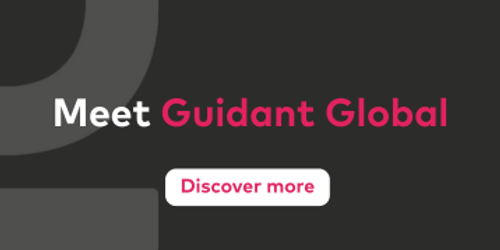

Author
Guidant Global, Chief Growth Officer
The Impact of Borderless Hiring on Talent and Workforce Management
A recent Guidant Global and Raconteur survey of more than 300 HR, procurement, and IT professionals revealed that a third of organizations have reduced the number of permanent employees over the past year. More than 80% increased their use of contractors with knowledge-based skills during that same period. And, in the next 18 months, 90% plan to increase their use of such contractors, while 75% will up their use of freelancers.
This trend toward blended workforces – those that incorporate a mix of internal and external talent – will only increase as organizations work to address growing skills gaps, especially among STEM and knowledge-based talent. To remain competitive, businesses must access the right talent to get work done efficiently – all while keeping costs under control.
Corporations are turning increasingly to global talent to meet this mandate, and the trend toward borderless hiring will continue as the race for the best talent at the right price intensifies. Yet as organizations embrace talent around the world, workforce management becomes exponentially more complicated: each country has different laws, rules, and regulations, as well as currencies, languages, time zones, and customs.
Borderless hiring challenges
Complexity varies greatly across regions. According to Staffing Industry Analysts Global Complexity Analysis of 75 contingent markets across 12 different criteria (e.g., market maturity, regulations, economic uncertainty, and labor shortages), Egypt is the most complex contingent market globally, with Russia and Argentina ranking second and third, respectively. Denmark and the Netherlands are the least complex contingent markets, with European countries accounting for seven of the ten best markets.
Key considerations impacting complexity of global talent management:
-
Legal and regulatory compliance (e.g., complex visa regulations, right to work, tax implications, data privacy regulations)
-
Resource classifications and the distinction between temporary agency workers, freelancers/independent contractors, and services providers
-
Compensation and benefits (e.g., cost of living, currency fluctuations, different social benefits and norms)
-
Cultural differences (e.g., work styles and feedback, communication barriers)
-
Remote and hybrid workforce management (e.g., time zone considerations, tech infrastructure)
In most regions, temporary agency worker legislation is based on employment legislation, which can include tenure limits (as is the case across most of Europe), reason for hire restrictions (in France for example), pay and benefit parity, and highly complex rate structures.
As organizations look globally for what is often remote knowledge-based talent, being mindful of the work and skills being required and the resource being hired, may allow them to consider freelancers or services providers which limits some of the complexities faced when hiring agency workers.
MSPs – your partner for seamless global talent acquisition and workforce management
A strategic managed service provider (MSP) can help navigate global talent acquisition and workforce management. They help organizations manage the complexities of global talent acquisition and management, providing:
-
International recruitment, from sourcing candidates to onboarding across countries
-
Regulatory compliance expertise
-
Data analytics and full global workforce visibility
-
Standardized processes that respect local requirements and expectations
-
Talent management
Increasingly, global organizations are looking to their MSPs to provide solutions for true total non-employee visibility. By including temporary agency workers, freelancers, and services providers in their managed service program, Guidant Global supports customers with global solutions, finding the right talent in a compliant way.
Case Study
A leading multinational consumer healthcare company came to us after they divested from an organization with a third-generation MSP. They wanted to establish themselves as a fast-moving consumer goods organization. Guidant Global created a multifaceted global program that supports all non-employee workers, including:
Contingent Worker MSP
-
Managing agent model (with the MSP sitting beside the suppliers)
-
Full supplier contract management
-
Master vendor management and oversight
-
Direct fulfilment
Services Procurement
-
Strategic IT supplier management
-
End to end services procurement management for niche suppliers
-
Post award services procurement management for niche suppliers
Profile Management
Providing visibility into 11,000+ non-employee resources across more than 100 countries with:
-
Worker classification support
-
On-boarding compliance management
-
Integration into HR system management in key countries
After winning the business in Q3 2024, Guidant Global successfully launched five countries (Canada, Italy, Puerto Rico, United Kingdom, and the United States) before the end of the year. Two more phases are planned throughout 2025 and 2026 to support Argentina, Brazil, India, Ireland, Japan, and Slovakia.
Balancing a blended workforce for optimal results
As organizations look across borders to fill skills gaps with the best talent around the world, talent acquisition and workforce management can become a headache for internal HR and procurement teams. The right partners, such as Guidant Global, can help.
Guidant Global helps organizations strategically balance internal and external labor around the world, which is crucial when it comes to accurate workforce planning. In addition to managing your entire contingent workforce supply chain, our subject matter experts will help you source the best STEM and knowledge-based talent, giving your organization cost-effective access to the very best talent on the market, exactly when you need it. Reach out to learn more about how Guidant Global can help you.
Insights to drive workforce performance
Workforce insights in your inbox
Sign up for our newsletter with the latest workforce management news, insights, analysis and more.
Australia
Suite 1403, Level 14
309 Kent Street
Sydney
NSW 2000
United Kingdom
United States
27777 Franklin Road
Suite 600
Southfield
Michigan 48034









